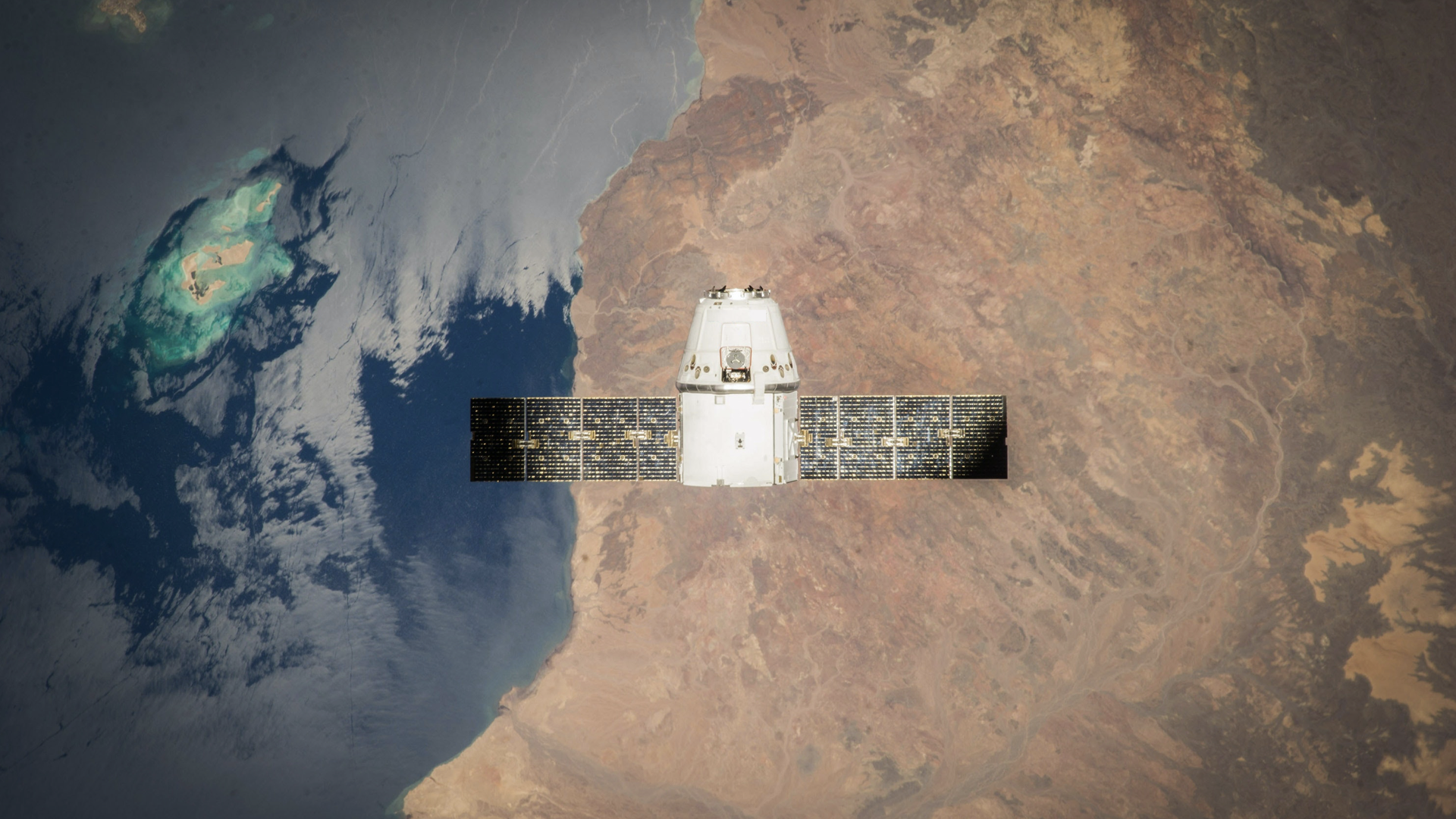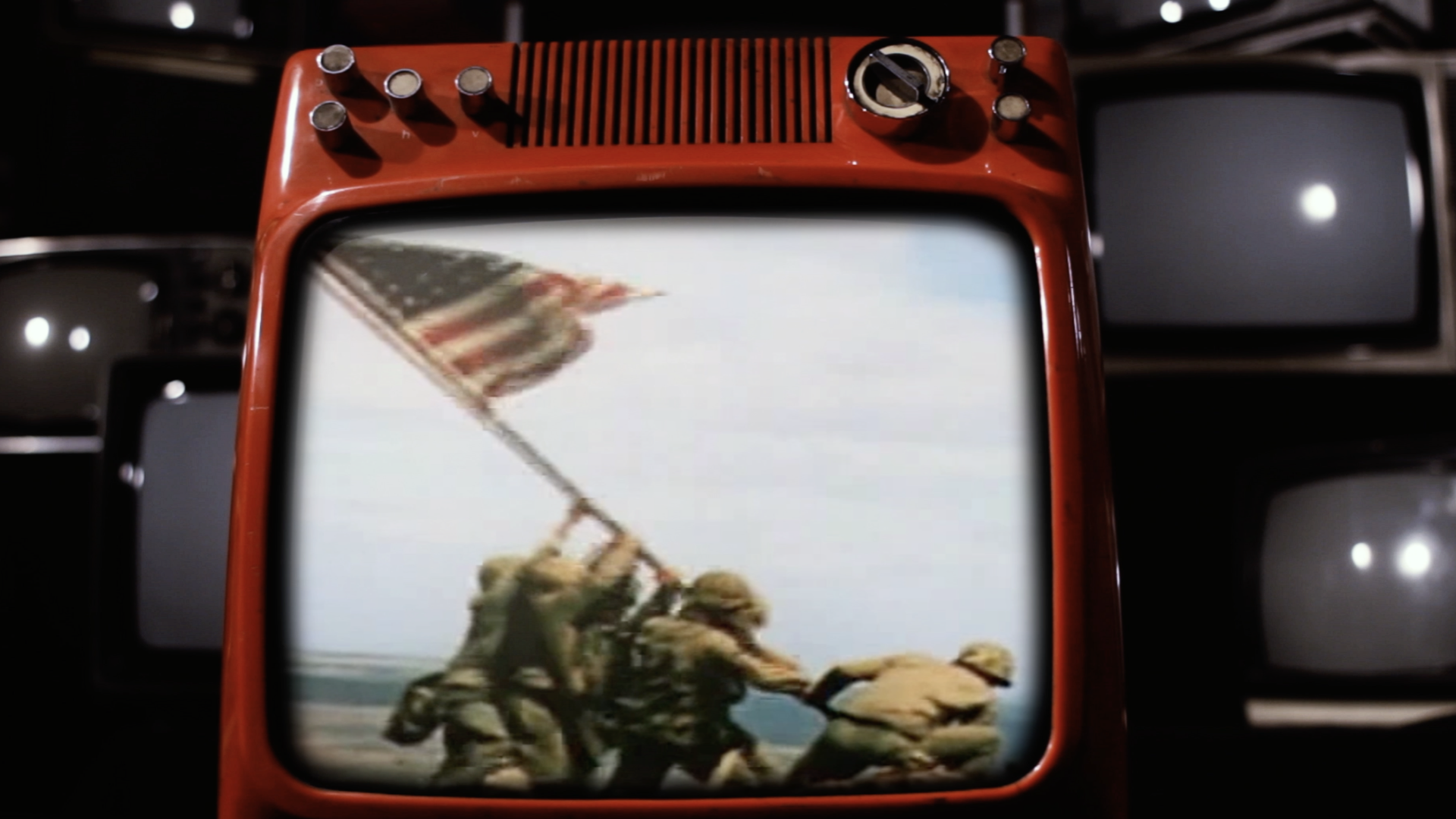The chaos of the United States’ withdrawal from Afghanistan has resulted in some of the most negative news coverage of Joe Biden’s seven-month-old presidency. Chuck Todd, the moderator of NBC’s Meet the Press, said the Taliban’s return to power is “likely to haunt Mr. Biden’s legacy.” The Washington journalist and insider Mike Allen called the situation an “embarrassment” for Biden. As Eric Levitz noted in New York magazine, the withdrawal “has been a ‘disastrous’ and ‘humiliating’ ‘fiasco,’ in the words of the mainstream media’s ostensibly objective foreign-policy journalists.” Now those assessments are triggering public arguments among U.S. journalists, pundits, and political figures about the media itself—and specifically the way it covered the American interventions in Afghanistan and Iraq over the past two decades. “The one-sided coverage of the military withdrawal from Afghanistan mirrors the mistakes made in the run-up to the Iraq War,” the progressive analyst Judd Legum wrote in a piece on the “media’s systemic failure.” But what is the problem, exactly, and what role has it played in the way Americans have understood U.S. engagement around the globe?
Robert Wright is an American journalist, the author of the Nonzero Newsletter, and a longtime critic of U.S. foreign policy. As Wright sees it, there tends to be “a kind of informal filtering process” among prominent U.S. analysts of global affairs. These experts as generally supportive of an establishment foreign-policy consensus favoring U.S. intervention in other countries, despite the patterns of repeated failure in American interventions abroad since World War II. Wright notes that the media frequently draws on the expertise of think tanks, some of which receive funding from weapons manufacturers and other interested parties hoping to shape discussion and debate. In addition, he says, there’s a constant temptation for the press to inflate threats to the U.S. as a means of attracting viewers and readers, especially since “there’s not inherently a big audience [in America] for foreign-policy discourse.” Even legitimate coverage of human suffering can, in Wright’s view, serve to promote intervention if it lacks analysis of potentially harmful consequences. Wright believes that there’s a potential for change in the media, as Americans reflect on the experience of Afghanistan, but he cautions that the establishment consensus—the worldview of what he and other critics call “the Blob”—has proved resilient for decades.
Graham Vyse: What has the coverage of the U.S. withdrawal from Afghanistan revealed to you—or reminded you—about how the media conditions Americans’ understanding of their country’s foreign policy?
Robert Wright: One factor that’s kind of peculiar to this case is that a lot of journalists and commentators have spent time in Afghanistan over the last 20 years and knew people there. Some of them employed people there. They naturally had a strong reaction to the prospect that friends and former colleagues would be stranded in Afghanistan and forced to live under a brutal regime. That colored the coverage of the chaotic evacuation.
But the question of whether the withdrawal will turn Afghanistan into a platform for anti-American terrorism naturally leads the media to turn to terrorism experts, who aren’t in the business of saying terrorism isn’t a problem. They’d be out of business if they said that. I’m not attributing consciously cynical motivations to them—we all want to convince ourselves that what we’re doing is important—but we wind up being advised about terrorism by people who tend to err on the side of over-dramatization. There’s also the problem of “the Blob”—the foreign-policy establishment.

Vyse: We discussed the Blob back in April, and you recently emphasized to The New York Times that you see the foreign-policy establishment as including not just government officials but also “people at think tanks, journalists, commentators, columnists, the people who show up on cable news to tell us what’s what.” So, what determines who gets to tell Americans what’s what about foreign policy in the mainstream media?
Wright: The people whose voices get amplified buy into the establishment consensus. It differs from network to network, but broadly speaking—on CNN or MSNBC—you’re seeing people who don’t question the fundamental assumptions underlying a longstanding establishment foreign-policy consensus, including a strong bias towards intervention. It could be direct military intervention, as in Iraq or Afghanistan, or it could be proxy military intervention, as in Syria. It could be democracy promotion in various senses, possibly including economic sanctions that immiserate people in various countries. But there’s an assumption that, by and large, American intervention is a good thing, our motives are pure, and our values and national security will be served in the long run by a highly activist approach to the world.
Now, I favor an activist approach of a certain kind—building global governance and addressing problems that confront the whole planet, for instance. But those kinds of problems, which don’t only threaten America and can only be solved through cooperation, including climate change and arms-control treaties, don’t get that much attention from the establishment.
It differs from network to network, but broadly speaking—on CNN or MSNBC—you’re seeing people who don’t question the fundamental assumptions underlying a longstanding establishment foreign-policy consensus, including a strong bias towards intervention. … there’s an assumption that, by and large, American intervention is a good thing, our motives are pure, and our values and national security will be served in the long run by a highly activist approach to the world.
Vyse: How does this system work? Why doesn’t someone hostile to U.S. intervention or what you call the establishment consensus typically have their voice amplified in the media?
Wright: Think tanks are often the source of expertise—and it doesn’t have to be that way. The media could look for people at universities, but they don’t do that very often. They don’t go looking for truly sophisticated experts on these various countries. They do what any of us would do—take the most efficient approach to booking somebody on TV. These think tanks have people devoted to packaging their experts for media presentation.
Where do think tanks get their money? They get money from arms manufacturers. They get it from groups that plainly have an interest in foreign policy and aren’t simply giving to support dispassionate scholarship. Some of it comes from foreign countries, increasingly from places like Saudi Arabia and the United Arab Emirates, which has helped shape what’s said about the Middle East. Some of it comes from domestic lobbies—there’s kind of a Cuba lobby, kind of an Israel lobby, kind of a Venezuela lobby, and maybe a couple of kinds of China lobbies. A lot of money is pouring into these think tanks, and that money ultimately shapes what comes out of them.
I want to emphasize that this isn’t an indictment of the individuals at these think tanks. It’s not like an arms maker gives them money and tells them what to say. It’s that a think tank gets money from an arms maker and then goes out and recruits somebody who genuinely believes in their heart that the U.S. should be intervening all over the world.

Vyse: That recruit has a clean conscience, because they’re being paid to say something they genuinely believe.
Wright: Right. I once saw a video of Noam Chomsky trying to reassure some TV journalist that he wasn’t impugning the journalist’s character. Chomsky basically said, Look, I’m not saying you say things because your employer tells you to. I’m saying that if you didn’t believe these things, you wouldn’t have this job.
Vyse: Which American think tanks are most influential when it comes to foreign policy?
Wright: Well, there are foreign-policy specific think tanks like the Center for Strategic and International Studies, the Center for a New American Security, and the Foundation for Defense of Democracies. FDD is a pro-Israel, anti-Iran think tank. CNAS is a liberal-hawk think tank, where people who aspire to work in a Democratic administration but have hawkish inclinations would go. CSIS has an establishment bent, but maybe it’s harder to characterize. Then you have think tanks that aren’t confined to foreign policy, like the Brookings Institution, which is seen as liberal-leaning, and the American Enterprise Institute, which is seen as right-leaning, but on foreign policy they often agree. They both supported the Iraq War.
Happily, there is an outlier among these think tanks—an exception to the Blob rule. The Quincy Institute for Responsible Statecraft was founded a couple of years ago with conservative and liberal money, so there’s diversity of thought at Quincy, but the common denominator is the belief that America needs a much more restrained approach to the use of military force, proxy interventions, and so on. That’s a very promising development.
By and large, you don’t see the kind of dissenting voices I think are urgently needed on the main cable channels. If anywhere, you actually see them on Fox News, because Trump introduced this whole new vibe of skepticism about military intervention into the Republican discourse.
[Quincy’s co-founder and president Andrew Bacevich spoke at The Signal about America’s place in the world back in April. Anatol Lieven, a senior research fellow at Quincy, talked at The Signal about Afghanistan in April and earlier this month.]
Vyse: What about the Council on Foreign Relations? What role do they play?
Wright: If there’s a single institutional embodiment of the foreign-policy establishment, traditionally people would say that’s CFR. What you see there—and in the foreign-policy establishment more broadly—is that there’s no accountability. You’d think that the people who’ve been getting things wrong—like advocating disastrous interventions such as the Iraq War—wouldn’t be welcome at the highest echelons of the foreign-policy establishment going forward. One theory as to why there’s no accountability is that getting these things wrong was so widespread within the establishment that nobody wants to see accountability. It would be like a mass suicide. They’d all have to find new careers.
Part of it is that the money continues to want what it wants. However disastrously military interventions go, it’s still the job of arms makers to sell arms. The media is slightly more mysterious to me. By and large, you don’t see the kind of dissenting voices I think are urgently needed on the main cable channels. If anywhere, you actually see them on Fox News, because Trump introduced this whole new vibe of skepticism about military intervention into the Republican discourse.

Vyse: What else is there to know about how the foreign-policy media ecosystem is formed? What about the role of former government officials? Isn’t there kind of a pipeline from government to the commentary world?
Wright: Totally. It makes sense in a way, because people in government know things other people don’t know. They have an expertise other people don’t have, which can be genuinely illuminating. At the same time, they tend to have a vested interest in defending the Blob consensus. They were probably aiding and abetting those policies during their time in government.
At minimum, I wish the media would diversify. Go back and look at letters against the intervention in Iraq that circulated in 2003. Look at those scholars. Where are those people now? Go on YouTube, find some who present themselves well on TV, and try booking them.
Vyse: If terms of who is getting booked now—or getting to be a commentator more broadly—how much of it is supply and how much is demand? Is there a big audience in America for these people and their views? Or are they just the people who are around in D.C.?
Wright: Part of the problem is there’s not inherently a big audience out there for foreign-policy discourse generally. If you want to get viewers or readers, there’s a bias toward dramatic statements. Now, advocates of restraint like me can say dramatic things. We can say, American foreign policy is completely screwed up. It’s leading us to ruin. Don’t trust these people. That’s pretty dramatic. But not many Americans care about foreign policy generally, and one consequence of that is probably that there’s an emphasis on highlighting stories of individual human suffering and peril.
Coverage of foreign policy often isn’t clinical enough. Clinical assessments often lead to the most humanitarian policies in the long run—to the least human suffering. The journalistic incentive to find dramatic stories of human suffering often leads to well-intentioned policies that increase the amount of human suffering in the long run.
That tendency responds to a very laudable part of human nature—our concern for the welfare of other human beings—but it can distract us from the big picture. Coverage of foreign policy often isn’t clinical enough. Clinical assessments often lead to the most humanitarian policies in the long run—to the least human suffering. The journalistic incentive to find dramatic stories of human suffering often leads to well-intentioned policies that increase the amount of human suffering in the long run.
Vyse: Let’s back up. Why isn’t there a large audience for media coverage of foreign policy generally? Is the issue that Americans just don’t care about it? Is it that the people who shape the national conversation in the U.S. don’t talk about foreign policy enough?
Wright: Our geographic situation in America is very different from, say, Europe’s. We live nowhere near an actually threatening country. We have no memory of war on our soil with the one-day exception of September 11th, 2001. We don’t feel as viscerally involved in the world as people in other countries do. We haven’t had to care—at least not for the purposes of self-preservation.
Vyse: How do the American media and public approach foreign policy differently than the media and public do in other countries?

Wright: Compare NPR to the BBC. There’s no comparison. The amount of good—or at least pretty good—foreign-policy coverage on the BBC, compared to on NPR, is like an order-of-magnitude difference. Of course, that may be partly a legacy of Britain’s empire—a lot of the countries they cover are former colonies. On the other hand, while America isn’t a literal old-fashioned empire, we’re a country with its fingers in a lot of pots, so you’d think we’d have a little more interest.
This is just armchair theorizing. I don’t know exactly how much interest in foreign policy there is in other countries. I assume people everywhere have a natural tendency to focus on local issues. It’s not natural to spend most of your time thinking about people in other countries or even other cities.
I also think that our historical position in the United States—and maybe, to some extent, our geographic position—has made it easy for us to buy into the idea of American exceptionalism. That’s the idea that we really are uniquely good—or have a unique combination of goodness and power—and that we intervene abroad for laudable reasons, and, more often than not, those interventions will work out.
You often hear Americans say things like, We’re the freest country in the world. Are we? It seems like kind of a hard thing to measure. There’s an assumption that we’re highly distinctive in being a liberal democracy.
Our geographic situation in America is very different from, say, Europe’s. We live nowhere near an actually threatening country. We have no memory of war on our soil with the one-day exception of September 11th, 2001. We don’t feel as viscerally involved in the world as people in other countries do. We haven’t had to care—at least not for the purposes of self-preservation.
One reason why so many people are saying so many things about Afghanistan right now is that the way the U.S. withdrawal is processed will presumably influence ideas about foreign policy going forward. I’m hopeful that people will take a good look at the two decades since we invaded Afghanistan—and the two prior decades when we were engaged there in another way—and see how much devastation was wrought. It wasn’t wrought by us, but it’s probably been much greater as a result of our involvement. I hope we’ll reflect on just how far we ever were from achieving the mission of nation building and how little we really understood about Afghanistan, its people, and what they wanted. I hope this will be a true reckoning.
Vyse: How has the way the media covers foreign policy changed over time?
Wright: The big story in terms of the underlying technology of the media has been what is in principle decentralization via the internet. That has expanded the conversation in a way. At the same time, I’ve been kind of surprised by the ability of the establishment to preserve consensus even amid decentralization.
The Iraq War was a good example. Suddenly there were all these blogs, so you might think that really permitted some ventilation in the conversation, but if you opposed that war, as I did, you almost felt like a freak. The pro-war consensus was so strong, and it seemed so bizarre. Then there’s the problem that social media often creates a kind of discourse that’s just not productive.

Vyse: I want to acknowledge that there’s plenty of excellent reporting about Afghanistan and U.S. foreign policy more broadly. Many major news organizations have people on the ground in foreign countries, and Americans looking for good coverage can find it. The Afghanistan Papers, an investigation by The Washington Post, revealed how U.S. officials knew the war was going poorly. But the existence of that kind of journalism doesn’t necessarily mean it gets disseminated widely and becomes part of mainstream media discourse.
Wright: Mainstream media outlets want big audiences. If their audiences wanted day-to-day reports from Afghanistan for 20 years, they’d be there. But you also have to remember that the people sent to Afghanistan by these media outlets have gone through a filter. They’re members of the establishment. There’s some diversity of viewpoints among them. Some have had their viewpoints reshaped by their experiences. Still, even in this age of media decentralization, you can name a few newspapers, television networks, and websites that collectively have a huge influence—and it’s not as if the people those outlets send over to tell us what’s going on are a random sampling of Americans.
One reason why so many people are saying so many things about Afghanistan right now is that the way the U.S. withdrawal is processed will presumably influence ideas about foreign policy going forward. I’m hopeful that people will take a good look at the two decades since we invaded Afghanistan—and the two prior decades when we were engaged there in another way—and see how much devastation was wrought. … I hope this will be a true reckoning.
Vyse: You think the people sent there tend to be aligned with the foreign-policy consensus?
Wright: I don’t want to overstate the homogeneity. With any given newspaper, I can think of reporters who tend to be more pro-war and those who seem to be less pro-war. But I just heard a podcast that was extremely illuminating about Afghanistan—Aaron Maté’s podcast Pushback—and mainstream people aware of that show think of it as kind of fringe. Yet if you go listen to this conversation, with two guys who served in Afghanistan and became disenchanted with the policy, you’ll learn a whole lot about how screwed up things were. Why is the alternative media—alternative in the sense of lots of mainstream people wanting to marginalize it—the place you have to go to get the most informative understanding of why things went so badly in Afghanistan?
Vyse: Another dynamic of the mainstream media we’ve explored at The Signal is the effort to get audiences hooked on politics and foster a sense of constant crisis. Do you see any relationship between those economic incentives and the way U.S. media presents foreign policy or America’s engagement with the world?
Wright: I’ve written a couple of times about David Sanger, this kind of alpha national-security correspondent at The New York Times. He’s always been good at generating attention to his stories, and I personally think he does it—perhaps not consciously—by inflating threats: Oh, God, Russia has done this! Oh, God, China has done that! This is a challenge to Biden! Biden must act!

Maybe this is part of the problem: What are the main ways to get Americans to pay attention to foreign policy? One is to scare the hell out of them. Well, it’s not productive to overstate threats. Another way is to draw their attention to human suffering, which sometimes can lead to policies that greatly increase the amount of human suffering in the world. The angles that don’t get much attention are, There’s not much of a threat here, or, There’s something going on in the other half of the world, but there’s no dramatic solution.
There’s also a different kind of threat inflation, which you see on the left and the right among some skeptics of the foreign-policy consensus, and that’s to say that our military misadventures are orchestrated by a cabal of nefarious elites. That’s another way to play on human psychology, which isn’t accurate or productive. But it’s hard to mobilize against militarism if you don’t demonize the people you hold responsible for militarism. It’s a real challenge to try to maintain balance while trying to bring down the Blob. The threat posed by the Blob consensus to the welfare of the world is pretty dire, but you have to avoid the temptation to exaggerate the nefariousness of the people who populate the Blob.
Vyse: And you have to avoid conspiracy theories about them.
Wright: Right. They’re just like the rest of us. They’re trying to make a living. Most of them are trying to do good things in the world. It’s just not working out.

